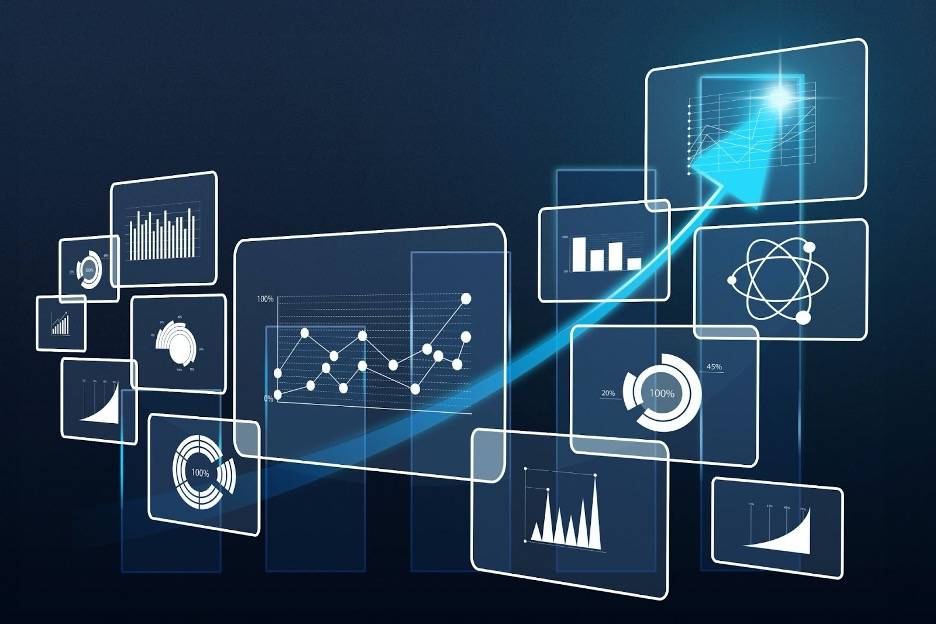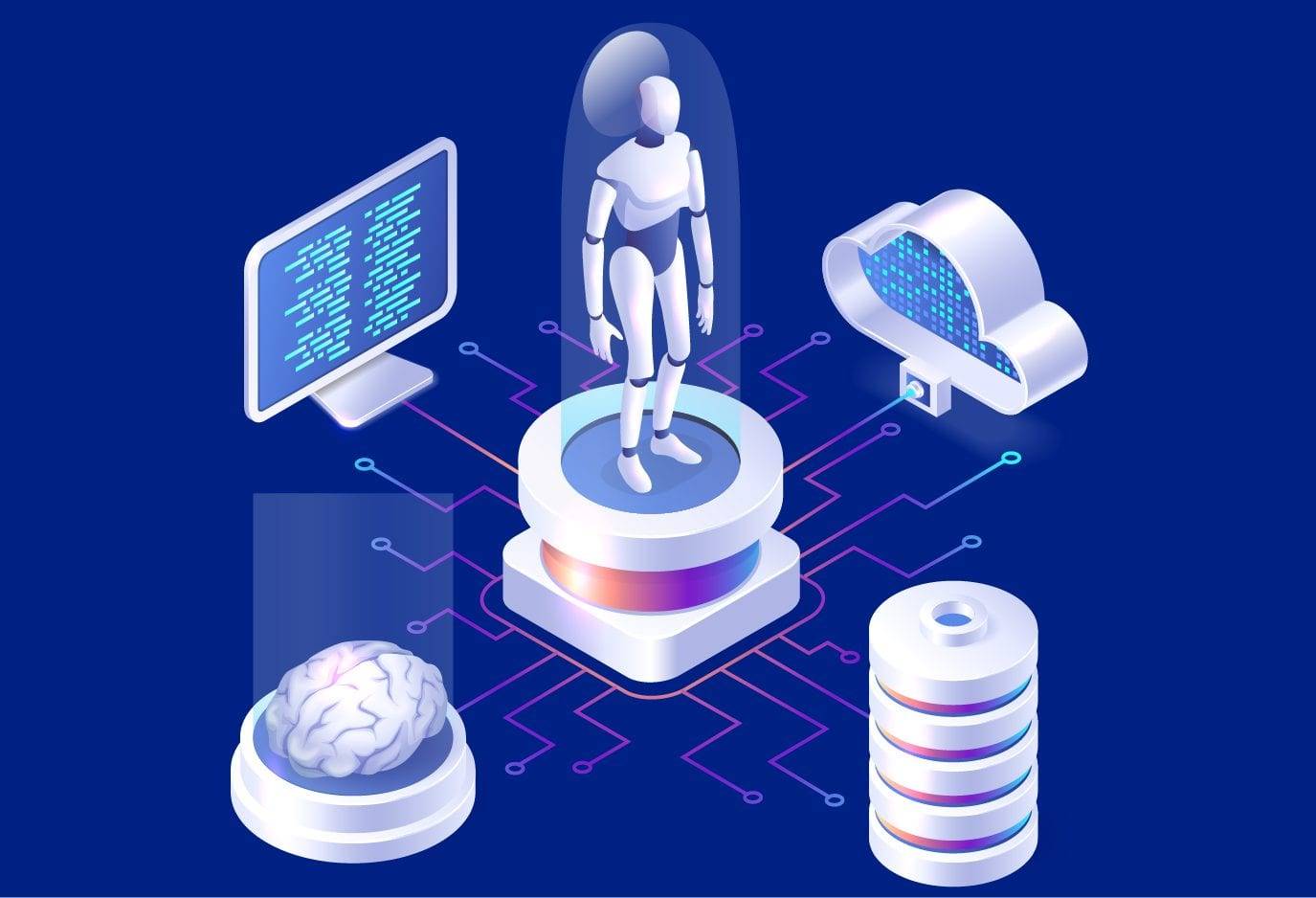Australia, as a nation of innovators and the tech future of the country, is looking brighter than ever. From cutting-edge artificial intelligence and robotics to 5G connectivity and beyond, Australia is set to be a global leader in the tech space in 2024.
With the right investments and innovation, Australia has the potential to be a world leader in the technology sector.
Even though there are some economic concerns, we predict that businesses will keep investing in the infrastructure that supports the soaring interest in digitalization, since firms are now more dependent on technology.
As we move away from the first year of the post-COVID period, companies big and small continue to take advantage of digital platforms to help them grow and take advantage of new and developing technologies that allow them to provide new services, gain a competitive edge, and improve worker effectiveness regardless of where they are.
What Advanced AI Systems Could Look Like in 2024

One of the most exciting predictions for Australia’s tech future is the development of advanced AI systems. The country is already a global leader in the development of AI systems, and by 2024, we could see the development of truly advanced systems that have the potential to change and improve every industry.
This could include the development of AI systems that are capable of creating synthetic imagery and audio, which could have a wide range of applications across a number of industries.
We could also see the development of AI systems that are capable of understanding human emotions, with potential applications across health care, business, education, and more.
Australia’s tech future could also see the development of AI systems that are capable of learning and self-organizing without human intervention, which could have a significant impact on how we live our daily lives.
It is becoming increasingly clear that AI technology is not only here to stay, but that it will have a dramatic transformation on many aspects of our lives, both on a personal level and professionally.
A 2022 survey conducted by Forrester revealed that 73% of data and analytics decision-makers are developing AI technologies and that 74% of those surveyed reported a positive outcome resulting from the use of AI.
Read more: Pros And Cons Of Cybersecurity Advancement
Additionally, Forrester foresees that in the year 2023, 10% of Fortune 500 companies will create material with the help of AI, 10% of global coding and tests will be done by AI, one-fourth of tech administrators will make AI governance reports to their board, and AI in the retail healthcare industry will diminish the time to treatment by 25%.
According to Accenture, AI has the potential to increase the profitability of different sectors by 38% until 2035, with an estimated additional income of $14 trillion.
IDC says over the next three years, governments and businesses around the world will invest more than $500 billion in artificial intelligence (AI). Furthermore, by 2025, AI technology is projected to be integrated into 90% of the most cutting-edge enterprise applications.
The Potential Impact of 5G Connectivity in 2024

Another important prediction for Australia’s tech future is the potential impact of 5G connectivity. 5G connectivity is the next generation of mobile connectivity.
5G connectivity will enable a wide range of new technologies and services, including the Internet of Things, autonomous vehicles, and advanced artificial intelligence.
With 5G technology, Australians will have access to faster and more reliable internet connectivity, as well as new ways of working and engaging with digital technologies. 5G could enable new services that are not yet possible, such as the potential for augmented reality to be used in hospitals and healthcare settings.
5G is set to be a game-changer for Australia’s tech future, and it could potentially drive significant economic growth for the country.
You can also read: GIS: OPTIMIZATION OF THE TELECOM INDUSTRY WITH GIS
The Growing Use of Cloud Computing in Australia
Cloud computing is an important technology that is predicted to grow in Australia’s tech future. Cloud computing is a type of online service that allows Australians to access software and data remotely, without having to install it on their computers or devices.
Cloud computing has become increasingly popular in recent years, and it’s expected to become even more widespread in the coming decade.
A wide range of businesses and industries use cloud computing services, and this will likely continue to grow as more Australians become familiar with the technology.
Cloud computing also has a range of advantages for end users, including reduced costs and improved security. This could make it even more popular in the years to come, particularly as cloud technologies become more advanced.
This rapid lifting and shifting to public cloud providers has led to some of the business issues we’re seeing today. This includes a lack of ROI from cloud deployments, mostly caused by inadequate planning, too much complexity, and not enough discipline when it comes to strategic cloud cost management, meaning no finos oversight.
These issues seem to be the focus as we go into 2024. It’s going to launch a new strategic trend that perhaps should have begun several years ago.
The problem most enterprises are having with cloud computing right now is related to too many cloud services that must be managed and tracked. Again, this leads to too much complexity, mostly through the rise of multi-cloud.
The Emergence of Digital Currencies in Australia
Another prediction for Australia’s tech future is the emergence of digital currencies. As more and more Australians use digital currencies, it’s predicted that the country could become a global leader in terms of the adoption of these technologies.
This could see the emergence of digital currencies like Bitcoin and Ethereum in Australia, although it’s also possible that new, uniquely Australian, digital currencies will emerge. Whatever form this takes, the increased adoption of digital currencies in Australia could have a wide range of implications for the country’s tech future.
For example, it could see the creation of a new Australian financial sector, with a wide range of new jobs emerging in the process. Digital currencies have the potential to bring significant economic and social benefits to Australia, and this will likely increase as adoption grows.
The Expansion of Autonomous Vehicles in Australia
One of the most exciting predictions for Australia’s tech future is the expansion of autonomous vehicles. Autonomous vehicles are already being tested in Australia, and they have the potential to transform the country’s roads and transportation systems.
The expansion of autonomous vehicles in Australia could significantly reduce the number of road accidents, as well as providing improved transportation services for passengers. Autonomous vehicles could also have significant implications for the Australian economy, particularly the car industry, as the production of new vehicles is predicted to change significantly.
While autonomous vehicles are expected to be rolled out globally, they could particularly benefit Australia, with the country’s vast road network and relatively open landscape potentially making it a leader in this space.
Cybersecurity becomes a heavy hitter.
The previous year has demonstrated the genuine and increasing danger of refined and advantageous cyber-assaults on Australian organizations.
To battle the expanding size of these dangers, the Australian government intends to make another cyber security system intended to reinforce the nation’s basic framework, just as other significant objectives to ensure against noteworthy cyber-assaults.
Addressing the National Press, the Minister for Home Affairs and Minister for Cyber Security, Clare O’Neil, expressed her objective is to make Australia “the most cyber-secure nation on the planet by 2030”
The Future of Work

As companies reconsider the concept of the contemporary workplace and how their staff engages with it, the notion of work in the future will evolve further.
PwC reports that 90% of people in Asia-Pacific would rather work remotely or in a hybrid manner.1 To be geared up for permanent hybrid work, executives must persist in perfecting processes, systems, and infrastructure to shield against new risks, guarantee reliable communication, and enable personnel to be successful from any location.
A research project involving all personnel of the Commonwealth Scientific and Industrial Research Organisation discovered that personnel that worked remotely during the virus outbreak would rather continue to do so, saying that their productivity was boosted, their commuting expenses and time were cut, and their job-life equilibrium became healthier.
To ensure that employees remain productive and prevent any performance-related issues, organizations will continue to install unified communications (UC) frameworks for as many remote personnel as feasible.
Read more: The Expert’s Guide To Targeted Ransomware Attacks
Automation at Scale
In the present situation, it is essential to change our viewpoint of digital automation from supplanting individual-driven collaborations to associating with people and platforms.
Technical automation gives a critical open door for organizations in nearly every field to accomplish more with less, which is progressively important as bosses attempt to deal with staffing deficiencies after the pandemic.
The utilization of automation technologies allows for businesses in traditionally “high-touch” industries such as hospitality to expand their customer service capabilities.
This hybrid approach is able to optimize the engagement of employees in person-to-person interactions while simultaneously reducing the amount of manual labor they must do. A digital system now handles the background tasks, creating a more effective overall customer service experience.
According to the International Data Corporation (ADC), it is expected that in 2025, six out of ten technology services related to infrastructure, security, data, and networks will rely on cloud-control systems that allow for extensive automation and can lead to major cost savings in daily operations.
Moreover, a survey from Asana has shown that staff members reported that only a third of their time is dedicated to the jobs they were employed to do, mainly because of ineffective processes.
Recent findings from Futurum Research and Automation Anywhere found that 61% of organizations are turning to automation to deal with staffing issues, and 94% say shifting employees to higher-value work is a priority.
Sustainability & Priority
Sustainability might be one of the most frequently cited trends for 2023 and beyond as consumers (and the world at large) become increasingly involved in the collective fight against climate change.
Every technology investment will need to be set off against its impact on the environment, keeping future generations in mind. ‘Sustainable by default’ as an objective requires sustainable technology,” says Gartner’s David Groombridge. Behind performance and quality, 80% of CEOs plan to invest in new products in 2022/23.
In its latest set of 100 predictions for the technology landscape in 2024 and beyond, the CCS Insights Predictions report focuses on sustainability.
By 2024, an international standard will be developed for calculating the carbon emissions of cloud services
This 2025, a new green certification will be displayed by websites using low-energy design and code. A new standards body enables websites, platforms, and mobile apps to sport a logo certifying their use of high-contrast colors, darker design themes, standard typefaces, and simpler, cleaner code.
By 2027, mobile apps will enable users to track their carbon footprint in real-time
Even though turning down sustainability projects at the corporate level can lead to expenses, it is important to acknowledge that ‘greenwashing’ can be expensive, too.
Greenwashing is a kind of false publicity in which companies use environmentally-friendly language to deceive people into believing their products, objectives, and principles are eco-friendly.
Read more: The Benefits & Advantages Of Cybersecurity.
The Benefits of Investing in Technology for Australia
As we’ve explored in this article, Australia’s tech future is looking incredibly bright. The country has the potential to become a global leader in terms of the adoption of new technologies, and this could have a significant impact on the economy.
From boosting productivity and engagement to driving significant economic growth, the adoption of new technologies could have a wide range of benefits for Australia. Investing in the development and adoption of new technologies is crucial for a country’s future, and this is particularly true in the tech space.






